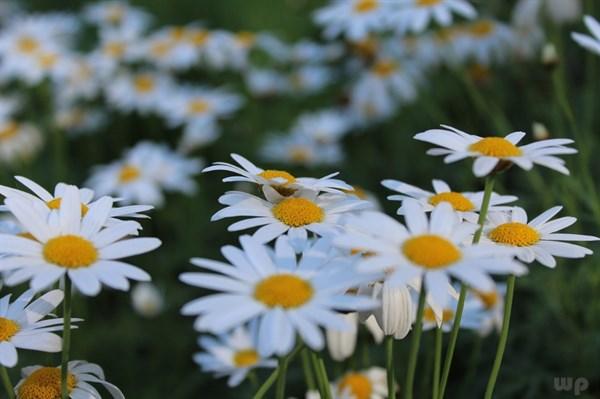1.What a great day!多么美好的一天感叹句:(1)What a/an 形容词 可数名词单数What a clever boy!(2)What 形容词 可数名词复数/不可数名词What fine weather/What nice flowers(3)How 形容词/副词 主语 谓语How fast she runs!/How beautiful the flowers are!,今天小编就来说说关于人教版九年级英语第2单元句型?下面更多详细答案一起来看看吧!

人教版九年级英语第2单元句型
1.What a great day!多么美好的一天!感叹句:(1)What a/an 形容词 可数名词单数!What a clever boy!(2)What 形容词 可数名词复数/不可数名词!What fine weather/What nice flowers!(3)How 形容词/副词 主语 谓语!How fast she runs!/How beautiful the flowers are!
2.I guess it was a little too crowded.但我认为它有点太拥挤了。(1)a little有点儿,修饰形容词、比较级、不可数名词。如,There’s a little water in the cup./The house is a little big for her./She’s a little younger than Tom.(2)crowded拥挤的;挤满的;人多的,形容词。be crowded with...挤满......。如,The house is crowded with people. uncrowded是其反义词,意为“不拥挤的;人少的”。
3.Bill thinks that the races were not that interesting to watch.比尔认为那些比赛观看起来并不那么有趣。(1)not that...没那么......。如,Don't worry.His Chinese is not that bad.
4.Bill wonders whether they’ll have zongzi again next year.比尔想知道明年他们是否还会吃粽子。(1)wonder想知道,动词。后面常接who,what,why等连词引导的宾语从句或“疑问词 动词不定式”结构。也可以接if或whether引导的宾语从句,表示一种委婉的请求或疑问。如,I wonder how to learn English well./She wonders why he was late for school this morning./I wonder if/whether she can help me with my English. wonder奇迹;奇观,名词。What are the wonders of the world?(2)whether是否,连词,引导宾语从句。如,He wants to know whether he can ride a bike to school next week. whether不管;不论,连词。用于表示无论出现什么情况,某事肯定发生或不发生。如,Whether he comes or not, I will go there tomorrow.
5.Bill and Mary believe that they’ll be back next year to watch the races.比尔和玛丽相信明年他们将会回来看比赛。(1)believe sb./sth.相信某事/某人(2)believe 句子,相信......(3)当believe 用于一般现在时且主语为第一人称时,若后跟否定意义的宾语从句,则应否定主句,即I/We don’t believe 肯定的宾语从句。如,I don’t believe he fails the maths exam.(4)be back回来(5)next year明年(6)watch the races看比赛
6.I think that we ate five meals a day!我想我们一天吃了五顿饭。(1)five meals a day每天五顿饭
7.I’ve put on five pounds.我胖了五磅。(1)put on增加(体重);发胖,常与weight或具体的数值搭配使用。(2)put on 穿上;戴上(3)put on上演;举办
8.I’m going to Chiang Mai in two weeks.两周后我要去清迈。(1)in 时间段,表示以现在为起点的一段时间之后,常与将来时连用。
9.I wonder if it’s similar to the Water Festival of Dai people in Yunnan Province.我想知道它是否和云南省傣族的泼水节相似。(1)be similar to与......相像的、类似的(2)the Water Festival 泼水节
10.People go on the streets to throw water at each other.人们走上街头互相泼水。(1)go on the streets走上街头(2)throw...at...把......抛/洒向......(3)each other互相;彼此
11.Because the new year is a time for cleaning and washing away bad things.因为新年是清扫和洗去晦气的时候。(1)a time for...一个......的时间/的时候(2)wash away洗掉/洗去(3)bad things晦气/不好的东西
12.Then you’ll have good luck in the new year.然后在新的一年里你将会有好运。(1)have good luck有好运(2)in the new year 在新年里
13.Chinese people have been celebrating the Mid-Autumn Festival and enjoying mooncakes for centuries.数个世纪以来,中国人一直在庆祝中秋节、吃月饼。(1)have been celebrating 是现在完成进行时结构。现在完成进行时表示过去某一时间发生的动作一直持续到现在,并且有可能继续下去,强调动作持续进行的状态,其结构为“have/has been 动词的现在分词”。常和for 时间段或者since 时间点连用。如,I have been writing this novel for three months.(2)the Mid-Autumn Festival 中秋节(3)enjoy mooncakes吃月饼(4)for centuries数世纪
14.Mooncakes are in the shape of a full moon on the Mid-Autumn night.月饼是中秋之夜满月的形状。(1)in the shape of呈/以......的形状(2)a full moon满月(3)on the Mid-Autumn night在中秋之夜
15.They carry people’s wishes to the families they love and miss.他们寄托着人们对他们所爱和所思念的家人的祝福。(1)carry people’s wishes to寄托着人们对......的祝福
16.There are many traditional folk stories about this festival.关于这个节日有许多传统的民间故事。(1)traditional folk stories传统民间故事
17.However,most people think that the story of Chang’e is the most touching.然而,大多数人认为嫦娥的故事是最感人的。(1)however然而,后面有逗号与下文隔开(2)the story of.........的故事(3)touching动人的;感人的;令人同情的,形容词。比较级是more touching;最高级是most touching。
18.After Hou Yi shot down the nine suns, a goddess gave him magic medicine to thank him.在后羿射下九个太阳之后,一位女神送给他仙药作为感谢。(1)shoot down射下;击落(2)give sb. sth.=give sth.to sb.给某人某物;把某物给某人(3)magic medicine 仙药
19.Whoever took this could live forever, and Hou Yi planned to take it with Chang’e.无论谁服下西药都能长生不老,后羿打算和嫦娥一起服用。(1)whoever无论谁;不管什么人,引导主语从句。如,Whoever comes will be welcome.引导让步状语从句,相当于no matter who.如,Whoever you are, I won’t tell you the secret.(2)live forever长生不老(3)plan to do sth.计划/打算做某事
20.However,a bad man, Pang Meng,tried to steal the medicine when Hou Yi was not home.然而,坏人逄蒙企图趁后羿不在家时偷此仙药。(1)try to do sth.企图做某事;努力做某事;尽力做某事(2)steal sth.from...从......偷某物
21.Chang’e refused to give it to him and took it all.嫦娥拒绝把仙药给他,便将它全部服下。(1)refuse to do sth.拒绝做某事(2)take...all全部吃下......
22.She became very light and flew up to the moon.她变得很轻盈,飞上了月宫。(1)become light 变得轻盈(2)fly up to the moon飞上月宫
23.Hou Yi was so sad that he called out her name to the moon every night.后羿悲痛不已,以至于每天晚上对着月亮大声呼喊她的名字。(1)call out大声呼喊(2)every night每天晚上
24.He quickly laid her favourite fruits and desserts in the garden.他飞快地在花园里摆出她最喜欢的水果和点心。(1)lay out摆开;布置(2)in the garden在花园
25.How he wished that Chang’e could come back.他是多么希望嫦娥能回来啊。(1)wish表示某种强烈的愿望,常难以实现。wish to do sth.希望做某事;wish sb.to do sth.希望某人做某事;wish that从句,希望......,从句常用虚拟语气;wish 宾语 宾语补足语(形容词/名词),祝愿某人/某事......。如,I wish to be a bird./I wish her to be a doctor in the future./I wish that I could fly like a bird./We wish you happy every day.(2)come back回来
26.After this,people started the tradition of admiring the moon and sharing mooncakes with their families.此后,人们便开始与家人一同赏月和分享月饼的传统习俗。(1)the tradition of... ......的传统(2)admire sth./sb.欣赏某人/某物;admire sb.for(doing)sth.因(做)某事而钦佩某人。如,admire the moon赏月(3)share...with... 和......一起分享......
27.I heard that it is becoming more and more popular to celebrate Mother’s Day and Father’s Day in China.我听说在中国庆祝母亲节和父亲节正变得越来越流行。(1)more and more popular 越来越受欢迎,“比较级and 比较级”表示“越来越......”。多音节和部分双音节的形容词或副词的比较级在前面加more,此类形容词或副词应用“more and more 原级”表示“越来越......”。(2)Mother’s Day母亲节(3)Father’s Day父亲节
28.It is also a good idea to help parents to do something instead.相反,帮父母做点事也是个好主意。(1)It is 名词/形容词 (for sb.)to do sth.(对......来说)做某事是......的。(2)help sb.to do sth.=help sb.do sth.=help sb.with sth.帮助某人做某事
,




